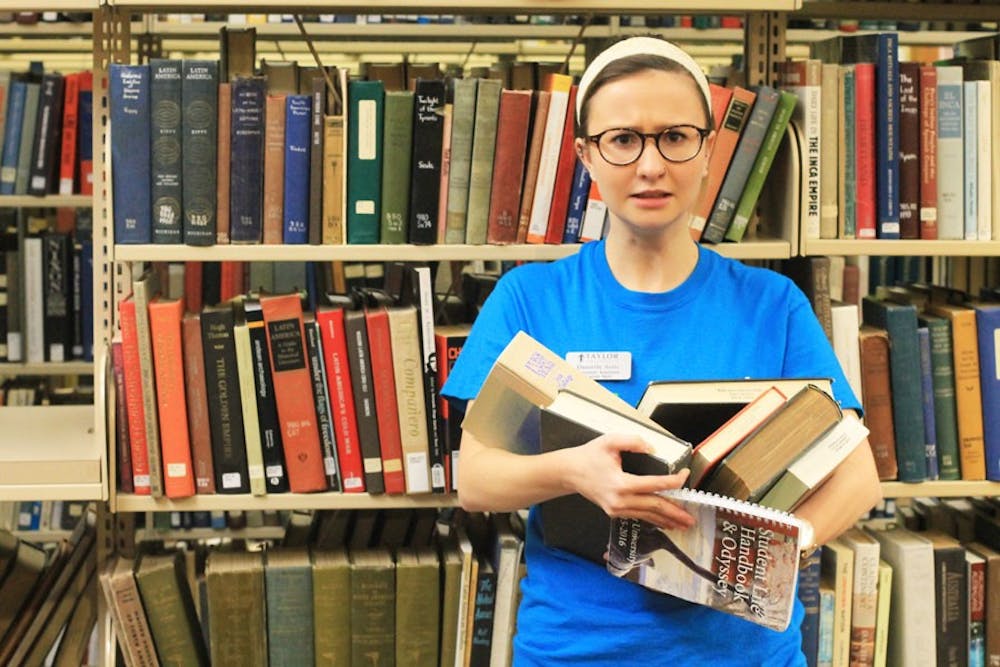By Jeff Grogan | Copy Editor
"How have you been?"
"You know, busy."
"Yeah, me too."
I've had this conversation countless times over the past three years. I've been on both sides-felt the whole range from sympathy to indifference toward the other person. Truth be told, I tend to ignore the other person's stress in favor of my own superior mountain. I run side-by-side comparisons of our schedules, extracurriculars and social lives to see who's actually busier. By the time we part ways, I've redirected my attention from them to myself.
Taylor's culture of involvement tends to glamorize busyness. I've bought into this culture since arriving on campus, but I'm just now realizing how toxic it is.
There's a simple, powerful lie that fuels the heavy-eyelid glory of being busy: We're important because of what we do.
My experience with this lie is one you've probably shared. I play the comparison game-and lose. Everywhere I turn, someone else is doing more than I am, with better results. The bar is always higher than I expect it to be, and nothing I accomplish ever satisfies me.
Believing the lie led to physical fatigue, emotional emptiness and distance from God. I lost precious time and energy in the pursuit of involvement-time that could've been spent sleeping, eating healthily and generally taking care of myself. My friendships subtly became ritualistic because my mind wasn't really focused on them-it was focused on what I had going on next. Worst of all, I fell away from God, my true identity and source of delight.
A friend of mine gave me some perspective on the downward spiral of bad habits and worse well-being. He said he felt trapped between the discouragement of being overcommitted and the fear of disappointing the people depending on him.
This is a huge problem. Not only are individuals pushing themselves toward constant activity, but the community is pushing them harder by shaming those who try to step down. Of course, we're not doing this on purpose; it's subconscious pressure. But it has to change.
Two factors contribute to immortalizing the lie, and chances are you've been affected by both at some point. The first factor is your attitude and behavior toward other stressed students. The other is your attitude and behavior toward yourself.
The most powerful way we can help others fight the lie is by letting our overinvolved peers off the hook. This applies to structured activities and groups as well as fluid friendships. Forgive them before they ask. Exercise gentleness and subdue frustration.
As for the twisted way we view our own busyness, I can only suggest a starting point. Most of the work has to be done on your own terms. I can't possibly know the best way for you to replace the lie in your heart with your true identity. That said, a healthy way to start is to acknowledge your limits-what you can and can't get done in a day-and boldly cross off your schedule things that fall beyond them.
You'll know what in your schedule comes from the lie and what comes from your true desires by the way they make you feel. Activities that consistently sap your energy at the end of already exhausting days are most likely the ones motivated by the lie. On the other hand, some commitments may refuel your spirit and give you strength to conquer your to-do list. These are the things motivated by your true identity, and it's good to be committed to them.
In the end, I can't promise immediate or dramatic change. This is a campus-wide, if not broader, issue, and my words are small. What I can promise is that you're important. Not because of what you do, but because of whose you are.





